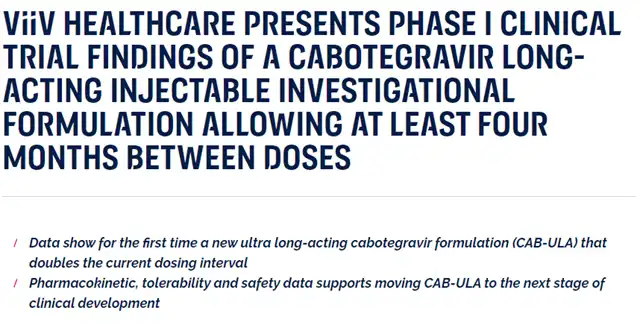HIV Treatment Breakthrough: Upgraded Cabotegravir Injected Once Every Four Months
- Normal Liver Cells Found to Promote Cancer Metastasis to the Liver
- Nearly 80% Complete Remission: Breakthrough in ADC Anti-Tumor Treatment
- Vaccination Against Common Diseases May Prevent Dementia!
- New Alzheimer’s Disease (AD) Diagnosis and Staging Criteria
- Breakthrough in Alzheimer’s Disease: New Nasal Spray Halts Cognitive Decline by Targeting Toxic Protein
- Can the Tap Water at the Paris Olympics be Drunk Directly?
HIV Treatment Breakthrough: Upgraded Cabotegravir Injected Once Every Four Months
- Should China be held legally responsible for the US’s $18 trillion COVID losses?
- CT Radiation Exposure Linked to Blood Cancer in Children and Adolescents
- FDA has mandated a top-level black box warning for all marketed CAR-T therapies
- Can people with high blood pressure eat peanuts?
- What is the difference between dopamine and dobutamine?
- How long can the patient live after heart stent surgery?
HIV Treatment Breakthrough: Upgraded Cabotegravir Injected Once Every Four Months
At the 2024 Conference on Retroviruses and Opportunistic Infections (CROI 2024), ViiV Healthcare announced the Phase I clinical trial data of its Cabotegravir ultra-long-acting (CAB-ULA) injection.
This study’s results bring another breakthrough to the field of HIV treatment, potentially reducing dosing frequency significantly and improving quality of life.

Cabotegravir is an HIV integrase inhibitor that works by preventing the virus’s DNA from integrating into human cell chromosomes, thereby blocking the replication process. The two-monthly injectable form of cabotegravir is the first long-acting injectable approved for HIV-1 prevention and can be used with rilpivirine injected monthly or every two months as a complete HIV-1 treatment regimen.
Compared to traditional daily oral medications, the long-acting injectable form of cabotegravir offers increased convenience and privacy, with reduced dosing frequency helping to improve medication adherence.
The study data presented showed that the long-acting injectable cabotegravir maintained stable plasma concentrations even with dosing intervals of at least four months, maintaining effective suppression of HIV. This means that patients only need to receive one injection every four months, significantly reducing inconvenience during treatment.
Additionally, the study explored the effects of combining CAB200 with an enzyme called rHuPH20. This enzyme can break down the barrier of subcutaneous tissue, allowing the drug to enter the body more rapidly through subcutaneous injection. This combined delivery method further enhances the efficiency of drug delivery, thus strengthening the antiviral effect.
However, despite the increase in CAB plasma concentrations with increasing doses, indicating increased initial absorption rates, ViiV Healthcare decided not to pursue this ultra-long-acting dosing regimen with the combined delivery method due to safety concerns and adverse reactions. This demonstrates that, while pursuing treatment efficacy, ensuring the safety of the drug and the patient’s tolerance is equally crucial.
As the head of research and development at ViiV Healthcare, Dr. Kimberly Smith, MD, MPH, has a deep understanding of the needs of the HIV community. She stated, “The HIV community needs longer-acting drugs to reduce the burden of daily treatment. To meet this need, ViiV Healthcare has brought innovation to the HIV community through injectable therapies. The new formulation of Cabotegravir (CAB-ULA) has higher concentrations and at least double the half-life, making it possible to administer once every four months for HIV treatment and prevention. The development of this long-acting drug will provide HIV-infected individuals with a more convenient and effective treatment option, while also helping to reduce the risk of drug non-adherence.”
As a pioneer and leader in the development of long-acting HIV drugs, ViiV Healthcare has been committed to providing better treatment options for people living with HIV. The successful development of the new formulation of Cabotegravir marks another significant breakthrough for ViiV Healthcare in the field of HIV treatment, bringing more hope and choices to HIV-infected individuals worldwide. Despite facing challenges, with ongoing research, we have reason to believe that the future of HIV treatment will be more convenient, efficient, and safe. This will bring better quality of life and longer life expectancy to many people living with HIV.
HIV Treatment Breakthrough: Upgraded Cabotegravir Injected Once Every Four Months
(source:internet, reference only)
Disclaimer of medicaltrend.org
Important Note: The information provided is for informational purposes only and should not be considered as medical advice.



